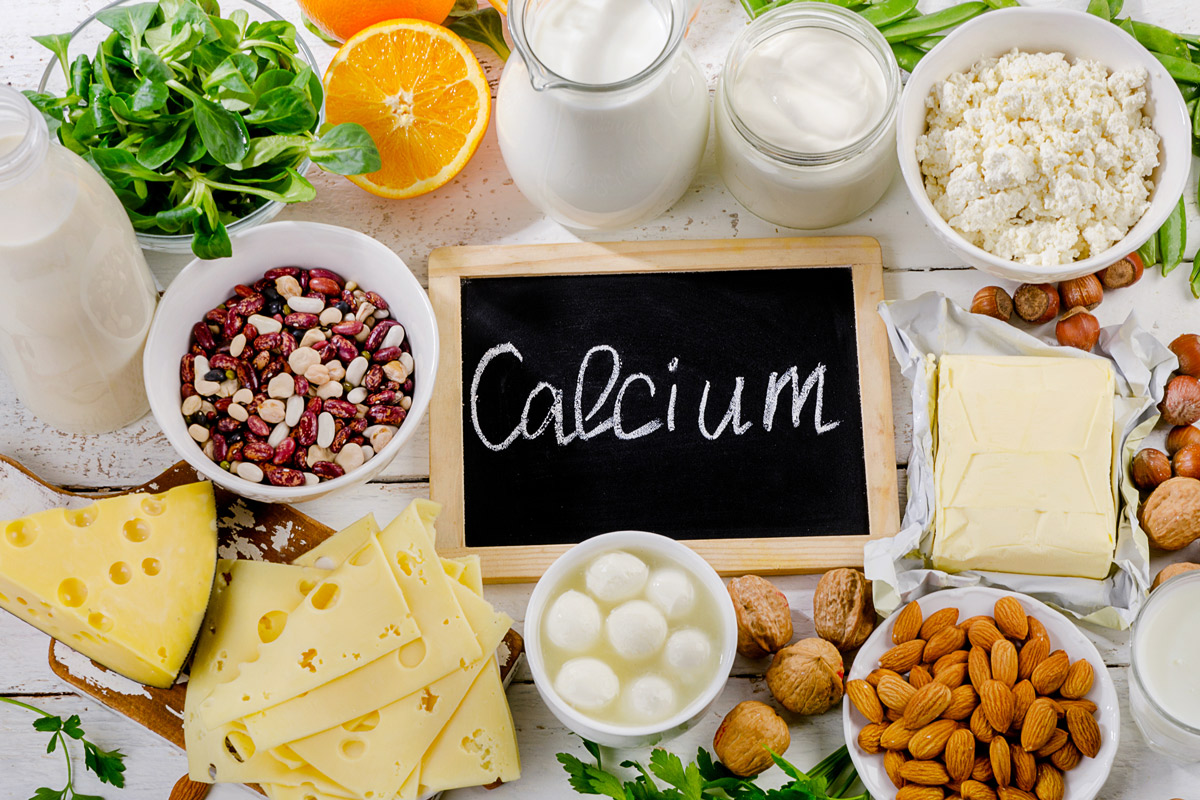
Getting Enough Calcium for Strong & Healthy Bones
Osteoporosis is a common problem as individuals age, but a healthy lifestyle, especially one that incorporates a healthy diet, can help keep your bones strong well into your golden years.
Following are some simple steps you can begin adding into your regular eating habits to ensure sufficient calcium intake for healthier bones.
Eat a Calcium-Rich Diet
To start, osteoporosis is a condition in which our bones become weaker, leading to increased risk of fractures. Adequate calcium and vitamin D lead to a small-to-moderate reduction of fracture risk.
The best way to obtain more calcium and vitamin D is with a well-balanced diet rich in calcium with sufficient proteins.
Foods high in calcium include dairy products such as yogurt, milk and cheese. Also consider seafood sources such as sardines and salmon canned with bones, or vegetables such as broccoli, collard greens, soybeans and kale.
Add fruits and vegetables to help alkalinize the blood, which promotes a positive calcium balance in the body.
 Because calcium content in different types of food varies, check the food label in regards to how much calcium each food contains. The food label lists calcium as a percentage of the daily value (DV) of calcium, which is based on daily intake of 1,000 milligrams of calcium. For example, if a food is labeled to have a 10% DV of calcium, this means that it contains 10% of 1,000 milligrams of calcium, or 100 milligrams.
Because calcium content in different types of food varies, check the food label in regards to how much calcium each food contains. The food label lists calcium as a percentage of the daily value (DV) of calcium, which is based on daily intake of 1,000 milligrams of calcium. For example, if a food is labeled to have a 10% DV of calcium, this means that it contains 10% of 1,000 milligrams of calcium, or 100 milligrams.
Recommended calcium levels differ for each age group. In general, a calcium intake of 1,000-1,200 milligrams is recommended for adults.
Should You Add a Calcium Supplement?
While it's best to obtain calcium from food, if you are unable to get sufficient calcium from your diet, use supplements.
Calcium supplements are available without a prescription.
Calcium carbonate is the most commonly found type of calcium supplement. Examples of calcium carbonate supplements include Caltrate, OS-CAL, Tums and calcium gummies.
Calcium carbonate is alkaline based and is best absorbed in an acidic environment. For optimum absorption, take calcium carbonate after a meal – a time when there is more acid in the stomach.
Taking proton pump inhibitors for heartburn or stomach discomfort may affect the absorption of calcium carbonate, as these medications reduce the amount of acid in the stomach.
Calcium citrate is another common calcium supplement. A well-known brand of calcium citrate is Citracal.
Calcium citrate is more readily absorbed than calcium carbonate because it is not alkaline based and therefore does not require additional acid in the stomach for absorption.
Calcium citrate can be taken anytime during the day.
If you take a proton pump inhibitor for heartburn or stomach discomfort, it's better to take calcium citrate.
Calcium citrate may contain less calcium than most calcium carbonate pills, so you may need to take more pills for an equivalent dose.
How to Know if You're Getting Enough Calcium
As with foods, it is essential to check the label to determine the calcium content in the supplements you're taking. Consider using the International Osteoporosis Foundation Calcium Calculator to help track calcium intake.
This calculator helps assess average daily calcium intake and compares calcium intake to optimal levels as recommended by the Institute of Medicine of the U.S. National Academy of Sciences. The application also recommends bone-friendly recipes based on preferred calcium-rich ingredients.
In summary, sufficient calcium intake is crucial for bone health:
- Most adults will require about 1,000-1,200 milligrams of calcium per day.
- Try to obtain calcium from the food and add on calcium supplements if needed.
Talk to your primary care physician about calcium if you have any questions about calcium supplementation.
Published on: February 28, 2018





